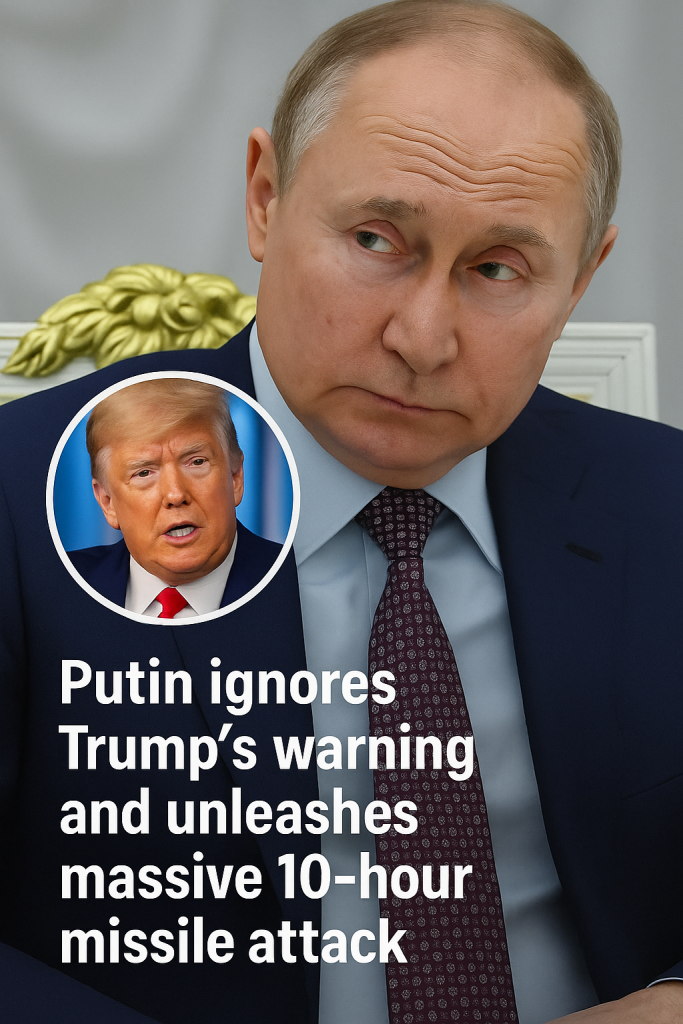In what analysts are calling the heaviest airstrike of the ongoing conflict, Russian President Vladimir Putin authorized a relentless 10-hour missile attack, intensifying the war’s devastation and disregarding recent international warnings, including a pointed caution from former U.S. President Donald Trump.
The strike, which unfolded over an extensive period, involved a massive deployment of missile forces targeting key strategic areas. Official reports suggest that the assault focused on military installations, supply hubs, and communication networks, aiming to cripple opposition capabilities decisively.
Escalation Amid Diplomatic Efforts
This dramatic escalation comes despite multiple diplomatic efforts to de-escalate the violence. Notably, President Trump had publicly urged restraint, warning that any large-scale aggression would lead to severe global consequences. However, the prolonged missile offensive starkly illustrates Moscow’s determination to press its advantage, prioritizing military objectives over diplomatic negotiations.
Experts are now analyzing the implications of this unprecedented strike. The sustained missile barrage, lasting nearly half a day, reflects not only the intensification of the conflict but also the evolving military tactics being employed. The scale and duration of the attack have overwhelmed defense systems, leading to significant material damage and casualties.
“This is unlike anything we’ve seen so far,” a military analyst commented. “The sustained intensity suggests a new phase of the conflict, where sheer volume and persistence are used to overwhelm defenses rather than quick, targeted strikes.”
Humanitarian and Strategic Impact
Beyond the immediate military impact, the strike has deepened humanitarian concerns. Civilian areas near targeted zones have experienced collateral damage, prompting urgent calls from international organizations for protection of non-combatants. The attack has strained already fragile infrastructure, complicating aid delivery and evacuation efforts.
Strategically, the strike signals a stark message from the Kremlin: despite external warnings and internal pressures, Russia is committed to achieving its objectives through force. This action risks further alienating global actors advocating for peace and could provoke stronger international responses.
Global Reactions and Future Outlook
While official responses have varied, many governments have condemned the missile barrage, expressing alarm over the scale of violence. There is concern that the strike could provoke retaliatory measures, potentially spiraling the conflict into a broader regional confrontation.
Analysts suggest the coming weeks will be critical in assessing whether this strike marks a turning point toward more intense warfare or if it will prompt renewed calls for ceasefire negotiations. For now, the 10-hour missile attack stands as a grim testament to the conflict’s escalating ferocity and the complex geopolitical stakes at play.
As the dust settles, attention will focus on the humanitarian response and the resilience of affected communities amid this unprecedented assault. The call for dialogue remains urgent, but with such decisive military action, the path to peace appears more challenging than ever.



